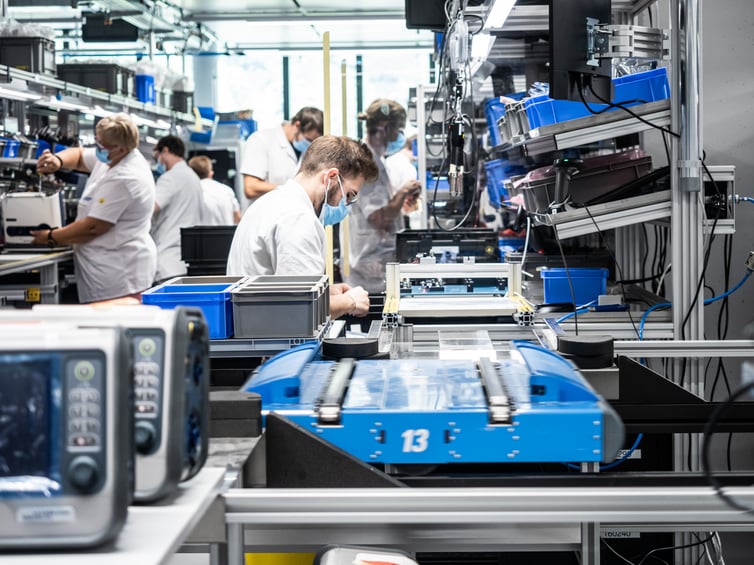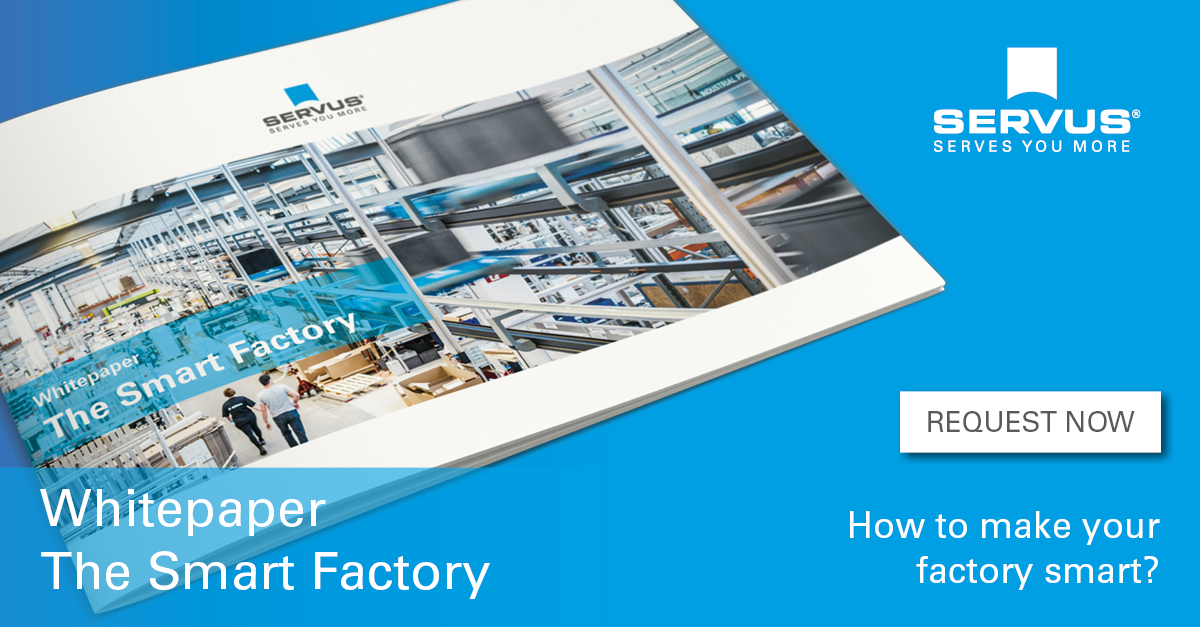Lean Management: for the production AND intralogistics of the future
Better, faster AND more cost-efficient sounds impossible? – It’s not! The solution: Lean Management in combination with just-in-time. While in the past the strategic decision was either in the direction of speed with a loss of quality, or accuracy and high quality with the aftertaste of slow processes, nowadays the entire process is taking on new forms. Lean consolidates the overall strategy of successful companies and we at Servus Intralogistics in Dornbirn support you on this path. With the Servus System, we facilitate your development into a Smart Factory.
What is Lean Management?
- related terms easily explained
In relation to Lean Management there are some terms that originally came from Japan, such as Muda or Poka Yoke. Muda stands for waste of any kind. The Poka Yoke principle is based on avoiding errors in advance, i.e. making processes and products impossible for errors to occur. Furthermore, Kanban logistics play an essential role in the processes. It is used to calculate the necessary time and number of orders in order to achieve the goal of just-in-time. Keyword: just-in-time. This is the next step necessary to successfully implement Lean Management. The just-in-time philosophy describes a completely stockless (pull) strategy that requires the most precise material requirements planning in advance. This saves space as well as costs and eliminates waste. In short: the correct delivery arrives at the right place at the right time, in the right quantity with high quality and at low costs. Converting a company to lean management, based on these guidelines, is an ongoing process that is continuously improved. This continuous improvement process is called Kaizen in Japanese and supports ongoing process optimisation within a company.

Lean: Risks
Achieving the bare minimum also entails risks. There are high dependencies on suppliers, strongly linked as well as fragile supply chains and a constant challenge for logistics. Nevertheless: optimised planning ensures smooth processes, especially for standard situations. In times of crisis, a lack of buffer could lead to delays. However, a company operating according to the lean principle finds alternative solutions in extraordinary situations. Flexibility makes the difference! Transparent and regional relationships with partners somewhat counteract this risk and enable flexible actions. The responsibility for smooth operations generally lies heavily with the logistics experts. This strategy can be a relief for companies, but it can also entail a loss of control.
Lean: Advantages
Despite the risks, a lean management approach crowns itself with numerous advantages: Quality improvement, spontaneity, cost, space and time savings are the most significant keywords in the industry. Lean supports the elimination of waste and focuses on the value-adding efficiency of work. With the help of the just-in-time strategy, process flows are optimised and the avoidance of idle time for people, machines, materials and capital is achieved. High cycle rates, rapid changeovers, one-piece-flow and high dynamics characterise the successful implementation of lean management.
Why does Servus work Lean?
The principle of our Servus system forms the basis for eliminating waste of any kind and implementing maximum efficiency. In the course of workshops, the Servus team analyses material flows as well as existing processes in companies and develops the ideal concept for your application. Components such as correct workplace design, realisation of the one-piece-flow, efficiency increases in production and also the avoidance of waste play an essential role. The goal: to transform the company into a Smart Factory. The already lean structure of the Servus ASRS, the rails and the ARC provide the prerequisites for this transformation. Thanks to the modular principle, the Servus system offers the possibility of looking flexibly into the future and making investments sustainable. At first glance, the time saved by eliminating idle time and search processes already represent a substantial change thanks to lean management.
As a result of smart automation technology, an efficient flow process between warehouse, production and logistics is created. In addition, search and waiting times are eliminated. Bringing the material flow into a "proper flow" enables a strong improvement in productivity in many applications, in addition to savings in logistics. At Servus Intralogistics, we live the philosophy of continuous improvement and strive for maximum optimisation of our already lean processes. You can experience the advantages of a Smart Factory live in our Heron Innovations Factory.
"A large number of customers from different industries helps us to find the best approaches for your solution as well."
According to Thomas Bischof, Managing Director of Servus Intralogistics.
One thing is true: the way is the goal and the first step is the most important.
Redesigning your processes can bring you countless benefits: so, don't hesitate to contact us with any questions and start a collaborative project. Make your company fit for the future - we are happy to support you.

About the author
Thomas Bischof is the Managing Sales Director at Servus Intralogistics.

